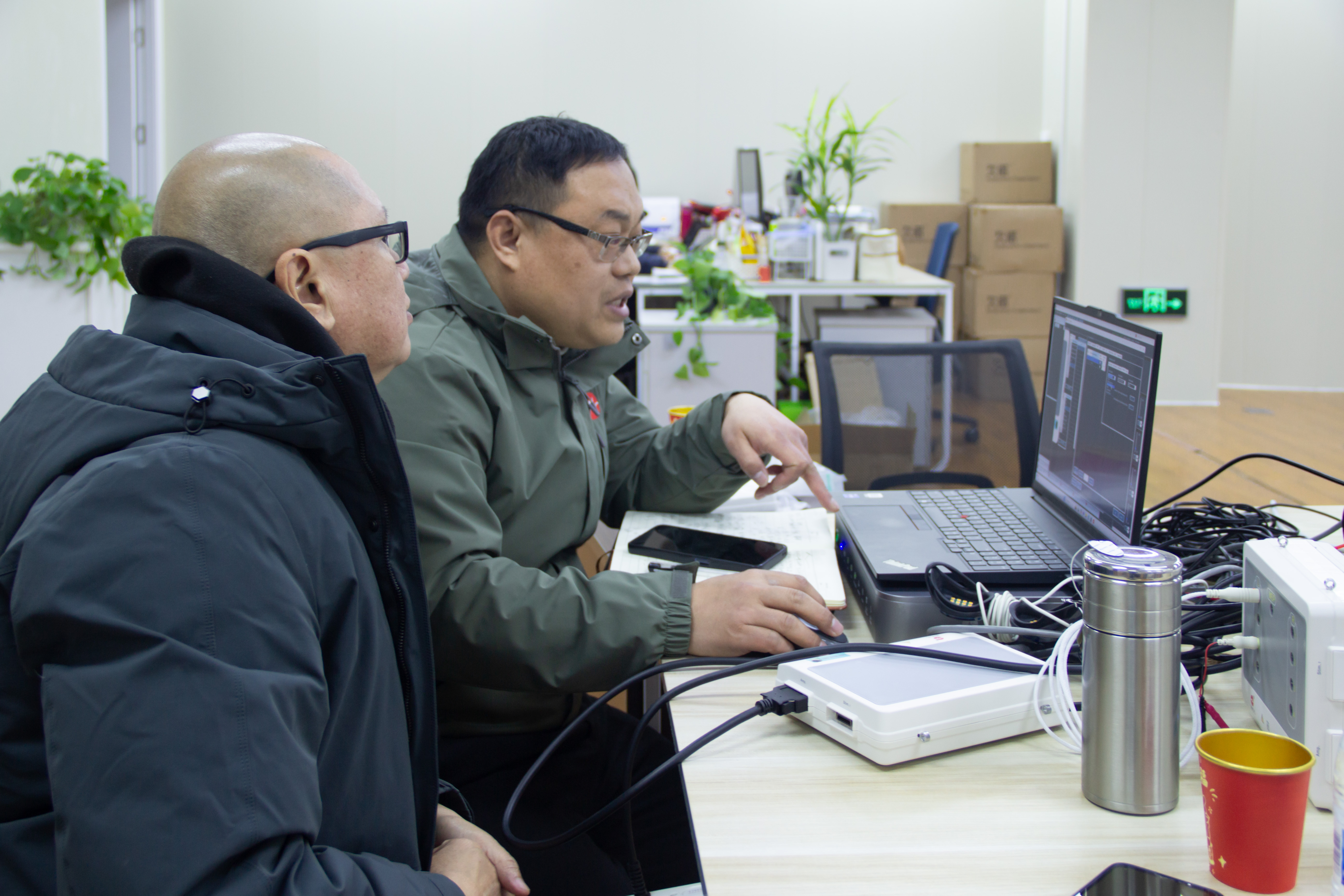《Staff Talent》Issue 2 :Zhu Wenting —— Don't waste your youth, the future is promising
Zhu Wenting —— Don't waste your youth, the future is promising

Q: Hello! Introduce yourself to everyone!
A:Hello everyone, I am Zhu Wenting. Born in 1997, I majored in rehabilitation. My first job after graduation was at NCC, and I've been here ever since. It's quite a coincidence that NCC was founded in 1997, with 26 years of technical expertise. I was also born in 1997, and it feels like I also accumulated 26 years of 'technical' experience.
Q: Got it, Ms. Wenting, who has accumulated 26 years of technical experience. Ha ha. Can you talk about your feelings on the journey of technical service?
A: When I first joined the company, I was primarily responsible for pelvic floor products, and gradually expanded to include biofeedback systems, surface EMG, and balance training products.
In mid-July 2022, Dr. Minghui, our head of IONM service, came to the company and gave a training session on intraoperative electrophysiology at our 'debut' meeting. I found it very interesting: the technology is challenging, as it can come with a certificate, and it's a rewarding challenge.
It helps me plan for the future, and having this technical knowledge makes me feel more secure. Because of my interest, I was motivated to attend every online course. However, without a clear learning goal, over time, and due to a lack of responsibility towards this product, I gradually forgot about it...
By mid-June 2023, our major surgical products were becoming increasingly mature, and market were expanding. Dr.Fu, Xu, and Zhang Chi were working very hard, and even Dr.Minghui had to frequently join in the operations. This is where my opportunity came~ I was honored to assist Dr. Minghui on two occasions, which was incredibly beneficial!
Why do I say this? While assisting Dr.Minghui, besides inserting needles and preparation sessions, I also learned how to communicate with the chief surgeon during surgery monitoring!
According to the appropriate scene, Dr. Minghui will communicate with the director about the following contents, generally including:
1. Introduce NCC and its products
2. Introduce the theory of monitoring: for every surgical team member in the operating room, whether it is a surgeon, anesthesiologist or ward doctor , Dr. Minghui will actively introduce the electrophysiological theory whenever she encounter them.
3. Importance of electrophysiological monitoring: Dr. Minghui will ask experts about clinical problems and discuss how IONM can help with them.
5. Report the monitoring situation in time, praise the good situation loudly, and be full of positive energy~
6. Treat yourself as a member of the operating room and give timely help to other surgical team members. Of course, if you are not familiar with the operating room environment, do not imitate this point.
When it comes to service, Dr. Minghui has always set a great example for me. After completing a surgery, the surgery quality is consistently high! I also shared electrophysiological techniques with other team members in the operating room.
The surgical teams in the operating room are very satisfied with our service at NCC. The equipment and staff are both excellent, making it hard not to leave a good impression! This has greatly helped us in our sales efforts! I am also very grateful to the leadership for giving me the opportunity to learn more about surgical neural monitoring here!

Q: Can you share with us your first experience of being on stage alone?
A: I was completely independent in my first time on the stage, at Zhejiang First Hospital. I was a bit skeptical about myself initially, but I did it on my own. I wasn't panicked at all because I had been in this field for three years, so I wasn't anxious or worried. I just needed to follow the routine and do my best. I was confident that I could handle it and set up the equipment!
So I acted as an experienced technician and went into the operating room. But before I went to the operation, I kept thinking about how to insert needles, where to insert them, how to set up the channel in the software, and told myself not to get confused.
When it was my turn to monitor, there was an unexpected accident...... The preoperative preparation at Zhejiang First Hospital was very fast, and I inserted the needle a little late, so I was urged by the nurses in the operating room. There were also too many broken hairs on the back of my head, so the circulating nurse told me to tighten my hat! After rushing through all the preparations, I realized I forgot to communicate with the anesthesiologist to put a dental pad for the patient, but fortunately, they usually put a dental pad for the patient!
In the end, the operating room nurse patiently waited for me to finish the needle insertion and cable connection. I successfully completed my first round of support. When I left, the circulating nurse told me there is no need to rush next time, as she would wait for me to finish the preparation and wear my hat. She was a very considerate nurse. Previously, Dr. Minghui often mentioned that some nurses were harsh on people who were slow in preparation which could delay the surgery. So, I felt fortunate to have not been kicked out!

Q: It is difficult when you first start everything, but you are already half-succeed if you are not afraid of the technical details during surgical monitoring. Do you have any warm moments to share in your working experience?
A: 1. I followed Zhang Chi in the Shaw Yifu trial, from 8 am to 1:30 am. At that time, I was still not a clinician, but just an observer. At that time, I felt that the electrophysiological technician had great pressure and long work time, so I deeply felt that the job of electrophysiological technician was not easy.
2. Once I received last-minute notice that the surgery next day at Zhongshan Hospital will need to use auditory nerve monitoring.
To conduct the test, I needed headphones, which I didn't know how to use. After the shift that day, I rushed to the company to learn from Zhang Chi and other colleagues who were staying there. Zhang Chi helped me set up the template and taught me the operational steps, including how to generate waveforms. We studied until around eleven o'clock in the evening. The next day, I went to the hospital to perform monitoring for acoustic neuroma. I am very grateful to Zhang Chi for his help during my learning process! Additionally, I am thankful to Dr. Fu Huabin, Xu Tian, Ming Hui, and the R&D colleagues for their assistance. When we encountered problems, everyone helped to diagnose and solve them together. Our NCC surgical electrophysiology team has such excellent leaders, and we are sure to grow stronger and strive for excellence.

 中文
中文 Arabic
Arabic Spanish
Spanish Hindi
Hindi French
French Indonesian
Indonesian Portuguese
Portuguese Persian
Persian Russian
Russian Korean
Korean German
German Vietnamese
Vietnamese Turkish
Turkish


